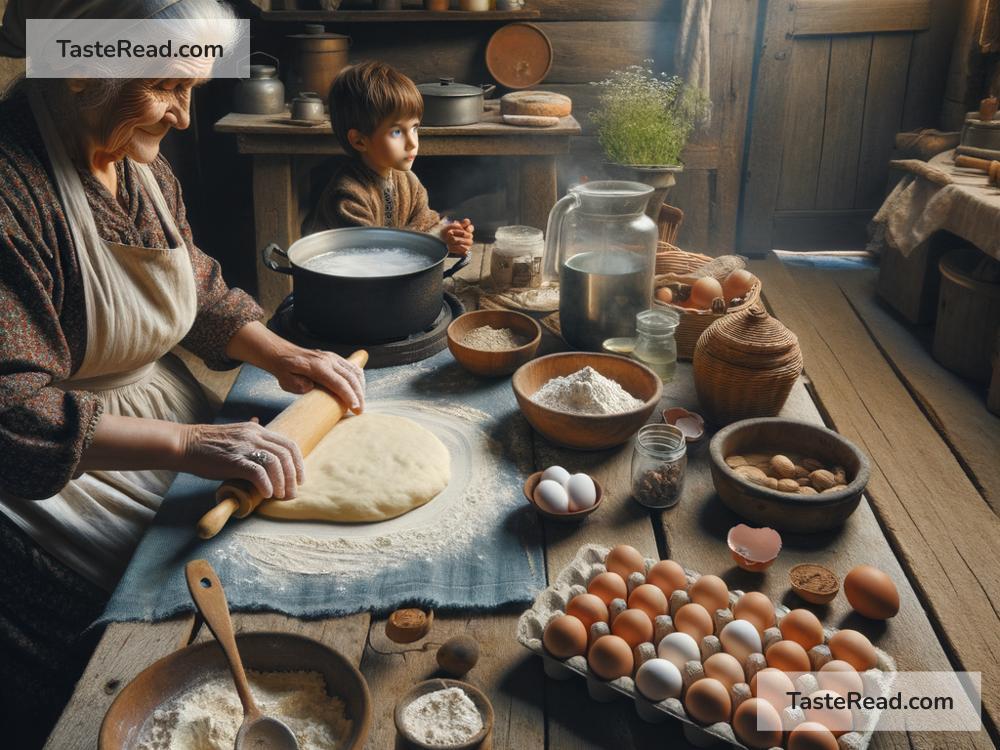The Origins of the First Noodle in Folklore
Noodles are one of the most beloved and versatile foods in the world. From spaghetti in Italy to ramen in Japan, noodles are enjoyed by millions of people every day. But have you ever wondered where noodles came from? The answer isn’t entirely clear, but various folktales and ancient stories have tried to shed light on the origins of this fascinating food. In this article, we’ll explore some of the legends surrounding the first noodle and trace its mythical beginnings in history.
A Food Born of Necessity
Before diving into folklore, it’s important to understand why noodles might have first been invented. Different cultures agree on one thing: noodles were likely born out of necessity. Grains like wheat, millet, and rice were staple crops for ancient civilizations. However, these grains needed to be preserved or transformed into easy-to-cook meals that could last for long journeys or feed large groups of people. Turning grains into dough, then stretching or cutting that dough into strands, was a practical solution that may have led to the creation of the noodle.
Now, let’s explore the stories behind its origins!
The Legend of the Heavenly Noodles
One Chinese folk story claims noodles are a gift from the heavens. The tale begins with a poor farmer who was struggling to grow crops. One day, as he looked up to the sky, the Jade Emperor—the ruler of heaven—noticed the farmer’s plight and wanted to help. The emperor sent a divine messenger down to Earth to deliver a special gift: strands of golden dough that could be boiled in water to create a hearty, filling meal.
The farmer, in his gratitude, shared the recipe with his neighbors, and soon the noodle became a favorite food across the land. People said that each noodle represented a blessing from the heavens, bringing good fortune to those who ate it.
Today, noodles are an important part of Chinese cuisine and culture, and some believe the story of heavenly noodles might have inspired their popularity.
The Story of the Running Dough
Another tale comes from Central Asia. In this story, it’s said that a merchant on his way to trade goods in distant lands accidentally spilled his bag of dough onto the wind-blown sand. When he stopped to collect the mess, he noticed that pieces of the dough had stretched into long, thin strands. Not wanting to waste food, he boiled the strands in water and discovered they were delicious.
The “running dough,” as the story calls it, became an instant hit among travelers who needed lightweight, sturdy food they could carry and cook on the road. This could explain why noodles were often associated with traders traveling along the Silk Road.
The Tale of the Clever Cook
A famous Italian folktale claims noodles originated in Italy during the Roman Empire. The story tells of a clever cook working in a noble household. One day, the kitchen ran out of bread, and the guests were growing impatient. The cook decided to mix flour and water to form a dough, but instead of making bread, she rolled the dough thin and cut it into strips. She then boiled these strips in hot water and served them with olive oil and spices.
The guests were so impressed by the new dish that they demanded more. Word spread across the region, and soon “pasta” became a staple in Italian kitchens. While historians debate whether this story is truly the origin of Italian noodles, it reflects how noodles can become a creative solution in times of desperation.
Who Invented the Noodle?
While the exact origin of noodles is still a mystery, the oldest evidence of noodles was found in China. Researchers discovered a bowl of 4,000-year-old noodles buried at an archaeological site along the Yellow River. These ancient noodles were made from millet, a grain that was common in China at the time. This discovery suggests that noodles might have originated in China before spreading to other parts of Asia and eventually Europe.
However, it’s worth noting that cultures all over the world have their own versions of noodles. Whether it’s Italian pasta or Japanese soba, almost every civilization has created a dish involving long strands of dough cooked in boiling water. Perhaps noodles were invented in many places at once, as people experimented with ways to use their grains.
A Shared Love Across Cultures
One thing is clear: whether inspired by the heavens, invented by accident, or created by clever cooks, noodles have captured the imagination and hearts of people from all over the world. Every culture has added its own unique twist to noodle-making over time, creating an incredible variety of noodle dishes.
From the folktales about noodles to the rich history behind them, the humble strand of dough serves as more than just food. It represents human ingenuity, resourcefulness, and the ability to adapt to different challenges.
Whether you’re slurping ramen, twirling spaghetti, or enjoying a steaming bowl of pho, remember that this simple dish carries centuries of stories and traditions. Noodles remind us of the importance of sharing food and culture, connecting people across time and space, one delicious bite at a time.
So, the next time you sit down to enjoy a plate of noodles, take a moment to appreciate their long, winding journey—from ancient folklore all the way to your dinner table.


